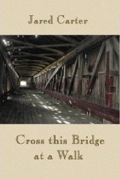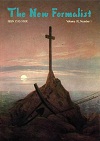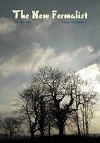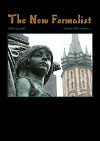Epitaph for a Palestinian Child
I lived as best I could, and then I died.
Be careful where you step: the grave is wide.
For All that I Remembered
For all that I remembered, I forgot
her name, her face, the reason that we loved …
and yet I hold her close within my thought.
I feel the burnished weight of auburn hair
that fell across her face, the apricot
clean scent of her shampoo, the way she glowed
so palely in the moonlight, angel-wan.
The memory of her gathers like a flood
and bears me to that night, that only night,
when she and I were one, and if I could …
I’d reach to her this time and, smiling, brush
the hair out of her eyes, and hold intact
each feature, each impression. Love is such
a threadbare sort of magic; it is gone
before we recognize it. I would crush
my lips to hers to hold their memory,
if not more tightly, less elusively.
Originally published by The Raintown Review
See
See how her hair has thinned: it doesn't seem
like hair at all, but like the airy moult
of emus who outraced the wind and left
soft plumage in their wake. See how her eyes
are gentler now; see how each wrinkle laughs,
and deepens on itself, as though mirth took
some comfort there and burrowed deeply in,
outlasting winter. See how very thin
her features are—that time has made more spare,
so that each bone shows, elegant and rare.
For loveliness remains in her grave eyes,
and courage in her still-delighted looks:
each face presented like a picture book's.
Bemused, she blows us undismayed goodbyes.
Originally published by Writer's Digest's—The Year's Best Writing 2003
Willy Nilly
for the Demiurge aka Yahweh/Jehovah
Isn’t it silly, Willy Nilly?
You made the stallion,
you made the filly,
and now they sleep
in the dark earth, stilly.
Isn’t it silly, Willy Nilly?
Isn’t it silly, Willy Nilly?
You forced them to run
all their days uphilly.
They ran till they dropped—
life’s a pickle, dilly.
Isn’t it silly, Willy Nilly?
Isn’t it silly, Willy Nilly?
They say I should worship you!
Oh, really!
They say I should pray
so you’ll not act illy.
Isn’t it silly, Willy Nilly?
The Divide
The sea was not salt the first tide …
was man born to sorrow that first day
with the moon—a pale beacon across the Divide,
the brighter for longing, an object denied—
the tug at his heart's pink, bourgeoning clay?
The sea was not salt the first tide …
but grew bitter, bitter—man's torrents supplied.
The bride of their longing—forever astray,
her shield a cold beacon across the Divide,
flashing pale signals: Decide. Decide.
Choose me, or His Brightness, I will not stay.
The sea was not salt the first tide …
imploring her, ebbing: Abide, abide.
The silver fish flash there, the manatees gray.
The moon, a pale beacon across the Divide,
has taught us to seek Love's concealed side:
the dark face of longing, the poets say.
The sea was not salt the first tide …
the moon—a pale beacon across the Divide.
Originally published by Sonnetto Poesia
Isolde’s Song
Through our long years of dreaming to be one
we grew toward an enigmatic light
that gently warmed our tendrils. Was it sun?
We had no eyes to tell; we loved despite
the lack of all sensation—all but one:
we felt the night's deep chill, the air so bright
at dawn we quivered limply, overcome.
To touch was all we knew, and how to bask.
We knew to touch; we grew to touch; we felt
spring's urgency, midsummer's heat, fall's lash,
wild winter's ice and thaw and fervent melt.
We felt returning light and could not ask
its meaning, or if something was withheld
more glorious. To touch seemed life's great task.
At last the petal of me learned: unfold.
And you were there, surrounding me. We touched.
The curious golden pollens! Ah, we touched,
and learned to cling and, finally, to hold.
Originally published by The Raintown Review



